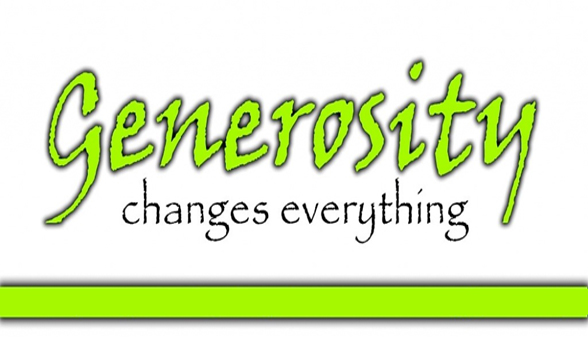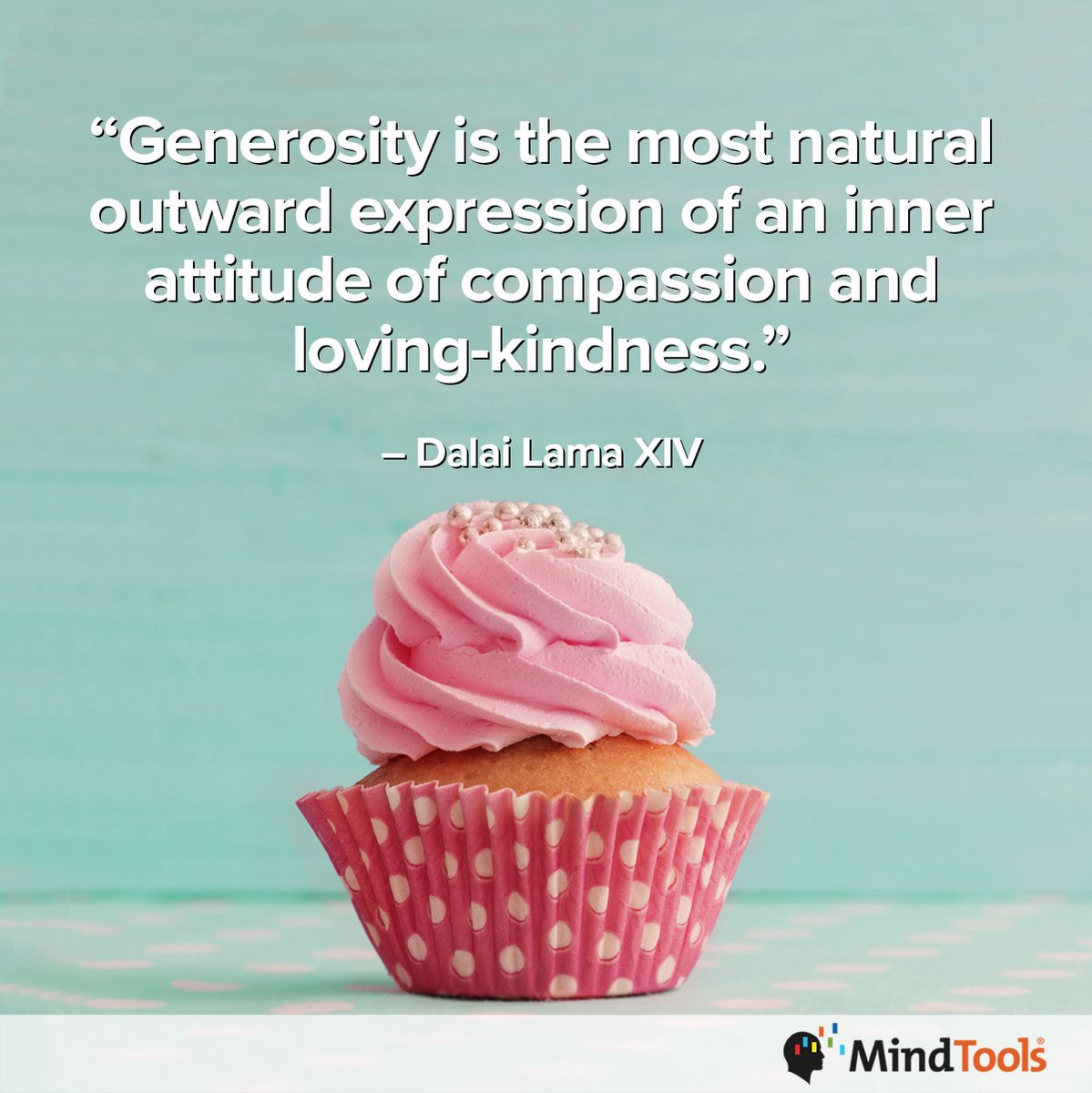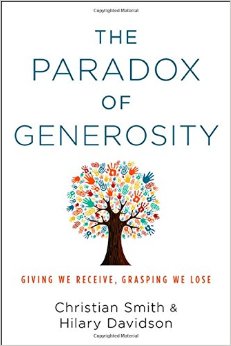
Photo: wordpress.com
Following on from my Blog Are you profit maximiser? Then, be generous. It will be good for you! I wanted to further my understanding of generosity. I beganmy search. Then, luckily I discovered the wonderful writings of Dr. Christian Smith, director of Notre Dame’s Science of Generosity Initiative at University of Notre Dame, USA. I could not stop reading. Thus, I feel very much that I should share some of Dr. Smith’s gems with you.
What Makes us Generous

By Dr. Christian Smith
“Why are people generous? Why are some humans much more generous than others? What factors tend to promote or inhibit generosity? It turns out that generosity makes a big difference in the quality of human personal and social life, both for the givers and receivers. So the better we understand it, the better we will be able to think about and practice it, toward greater human flourishing.
By “generosity,” I mean the virtue of giving good things to others freely and abundantly. Generosity thus conceived is a learned character trait that involves attitude and action—entailing both the inclination and actual practice of giving liberally. Generosity is not a haphazard behavior but a basic orientation to life. It entails not only a moral good expressed but also certain vices rejected, such as selfishness, greed, fear, and meanness. Generosity also involves giving not just anything, but rather those things that are good for others. What exactly generosity gives can vary: money, possessions, time, attention, aid, encouragement, emotional availability, and more. But it always intends to enhance the true wellbeing of the receiver.
Generosity is not identical to pure altruism, since people can be authentically generous in part for reasons that serve their own interests as well as those of others. Indeed, insofar as generosity is a virtue, to practice it for the good of others also necessarily means that doing so achieves one’s own true, long–term good, as I note below. Generosity, like all virtues, is in people’s genuine enlightened self-interest to learn and practice.
Having said that, the answer to our question is going to be complicated. There are no “social laws” that explain who is generous and why. There is no simple list of variables that “produce” or “predict” generosity. A variety of complicated factors operating in any number of combinations at different levels of life—cultural, institutional, experiential, situational, psychological, and neurological—influence different levels and kinds of generosity that people express.
Empirical research can nonetheless tell us much about the conditions and expressions of generosity. At the most basic level we should note that human persons not only have selfish tendencies, but also possess the natural capacity and even the propensity to be generous. This capacity and tendency for generosity in fact begins to be exercised in the earliest years of life, even before toddlers learn to talk—as shown, for example, by the developmental-psychology research of Harvard University’s Dr. Felix Warneken, funded in part by my Science of Generosity Initiative. This tells us that social-science theories and explanations that assume strong versions of “rational egoism”—that everything people do is ultimately driven by calculated self-interest—are missing crucial parts of reality. Against traditions that posit, essentially, that “humans are naturally just nasty,” exemplified by Thomas Hobbes, the truth is that human beings are more complicated, and that generosity is just as natural to the human condition as is selfishness.
The primordial origin of human generosity may partly relate to the intimate experience of maternal care for offspring, as suggested by the neuroscience research of Stony Brook University’s Drs. Stephanie Brown and James Swain, also funded by the Science of Generosity Initiative. It appears that something about becoming a mother (and father, though that process appears to be delayed) actually changes the way adult brains are wired to respond generously to the needs of others. The long proto-human and early human experience of hunting-gathering life in a world of scarcity and danger also certainly formed in deep human neurology the importance of generosity among at least the members of family, kin, and tribe. Natural selection would have worked against human ancestors who did not practice the giving, sharing, and sometimes self-sacrifice necessary for the collective survival of one’s immediate group. Such processes would have over the long run built the capacity and readiness for generosity into deep human nature. (As an aside, the much bigger challenge, usually only somewhat successfully met, has been learning to be generous with people beyond the close social ties of blood relatives and tribe, to those who are genuinely “other.”)
But possessing the natural general power for some given practice like generosity does not guarantee that it will be activated and exercised in any give case. Not all human capacities are triggered, cultivated, and expressed. Some, perhaps especially virtues like generosity, need to be actively prompted and tutored in order to become regular practices. That shifts our analytical attention from deep human neurology to more proximate triggering and routinizing factors promoting generosity. Again, nothing here is determinative. Everything is a matter of tendencies and contingencies.
For example, at a big-picture level, societies whose macro cultures normalize and encourage generosity in different forms will tend to produce people who are more generous than those of other cultures. People who were raised by parents who practiced generosity will also tend to be more generous themselves as adults, sometimes without even realizing it. And those who are committed members of social institutions that teach the good of generosity—such as many religious congregations or community associations—will tend to be more generous people. Exactly how such factors shape different people, however, will vary from case to case.
Part of the answer to the question about why some humans are generous is the fact that being a generous person is usually rewarding. To ungenerous people, the idea of giving good things away can feel like a threatening loss to be feared and avoided—which is partly why they do not give. But people who have learned to practice generosity know that their own lives are positively enhanced in various ways by their giving to others, as shown empirically and theorized in depth in my forthcoming book, The Paradox of Generosity: Giving We Receive, Grasping We Lose (Oxford University Press, co-authored with Hilary Davidson). Practicing generosity causally promotes greater happiness, health, emotional wellbeing, and sense of purpose in life. Generosity toward others is thus usually “repaid” in valuable ways, which helps to explain its perpetuation. The next question then becomes what distinguishes people who learn to practice generosity from those who do not? Related Questions
How Might the Internet Foster Generosity?
Normal social science in the quantitative vein will tackle such questions by searching for statistically significant associations between variables represented by survey measures. Doing that tells us, for example, that more financially generous adults in the U.S. generally tend to be more religious, better educated, more personally financially well organized, and more empathetic and trusting toward others, among other factors. Oftentimes, such associations are only weak to moderately strong, and they can miss different sets of significant correlations operative in distinct sub-populations. Still, this approach does begin to provide some important descriptive findings, which then need further explanation and theorizing.
But I think in the end associations between variables per se does not explain why (some) people are generous. The best philosophy of social science, critical realism, tells us that the answers must be found at a deeper and more theoretical level than correlated empirical observables. Many causal psychological and social mechanisms that are not directly empirically observable are operating in complex ways that produce (or inhibit) generosity. Research projects, such as my own Science of Generosity Initiative, are currently working to identify and theorize just such underlying causal mechanisms, and publications in coming years will enhance our knowledge and understanding of them.
Meanwhile, shifting to a higher level of observation and reflection helps to answer our question more adequately. We humans are ultimately generous because, if we (or enough of us) were not generous, we not only would not survive but could never flourish as persons. A world without human generosity would be like an internal combustion engine without lubricating oil—pretty soon it would overheat and shut down. Generosity, like trust and reciprocity, provides a necessary lubricant for the functional human social and institutional relations necessary for human thriving. But generosity is even more than an instrumental necessity for the smooth operation of society’s machinery. Generosity itself helps to define what good human lives and societies even look like in the first place. Simply to be a flourishing human person inherently involves practicing generosity. There is no such thing as an authentically thriving stingy person. The same is true for society. Good societies that promote the widespread flourishing of their members not only depend upon but also embody and promote generosity, both inter-personally and institutionally. That is simply part of what it means to be a good society, given the nature, goods, and limitations of human personhood itself, as I argue in my book, What is a Person? (University of Chicago Press, 2010). In the end, beneath all of the self-interest, competition, and conflict that we find so much of in human societies, it is finally people’s degree and quality of care for the wellbeing of themselves and others that defines a good human life and a good society. And caring such ways well always requires practicing generosity.”
*The above article by Dr. Christian Smith, director of Notre Dame’s Science of Generosity Initiative, and was originally published on 27 May 2014 by Science of Generosity Initiative at University of Notre Dame, USA.
See the original article:
What Makes us Generous? // Science of Generosity // University of Notre Dame
Read more:
What is Generosity? // Science of Generosity // University of Notre Dame
Generosity’s gift keeps giving

Christian Smith and Hilary Davidson, The Paradox of Generosity: Giving We Receive, Grasping We Lose, New York, NY: Oxford, 2014
“Determining why, when, and to whom people feel compelled to be generous affords invaluable insight into positive and problematic ways of life. Organ donation, volunteering, and the funding of charities can all be illuminated by sociological and psychological perspectives on how American adults conceive of and demonstrate generosity. Focusing not only on financial giving but on the many diverse forms generosity can take; Christian Smith and Hilary Davidson show the deep impact usually good, sometimes destructive that giving has on individuals.
The Paradox of Generosity is the first study to make use of the cutting-edge empirical data collected in Smith's groundbreaking, multidisciplinary, five-year Science of Generosity Initiative. It draws on an extensive survey of 2,000 Americans, more than sixty in-depth interviews with individuals across twelve states, and analysis of over 1,000 photographs and other visual materials. This wealth of evidence reveals a consistent link between demonstrating generosity and leading a better life: more generous people are happier, suffer fewer illnesses and injuries, live with a greater sense of purpose, and experience less depression. Smith and Davidson also show, however, that to achieve a better life a person must practice generosity regularly-random acts of kindness are not enough.
Offering a wide range of vividly illustrative case studies, this volume will be a crucial resource for anyone seeking to understand the true impact and meaning of generosity.”
Buy the book:
The Paradox of Generosity: Hardback: Christian Smith - Oxford University Press
